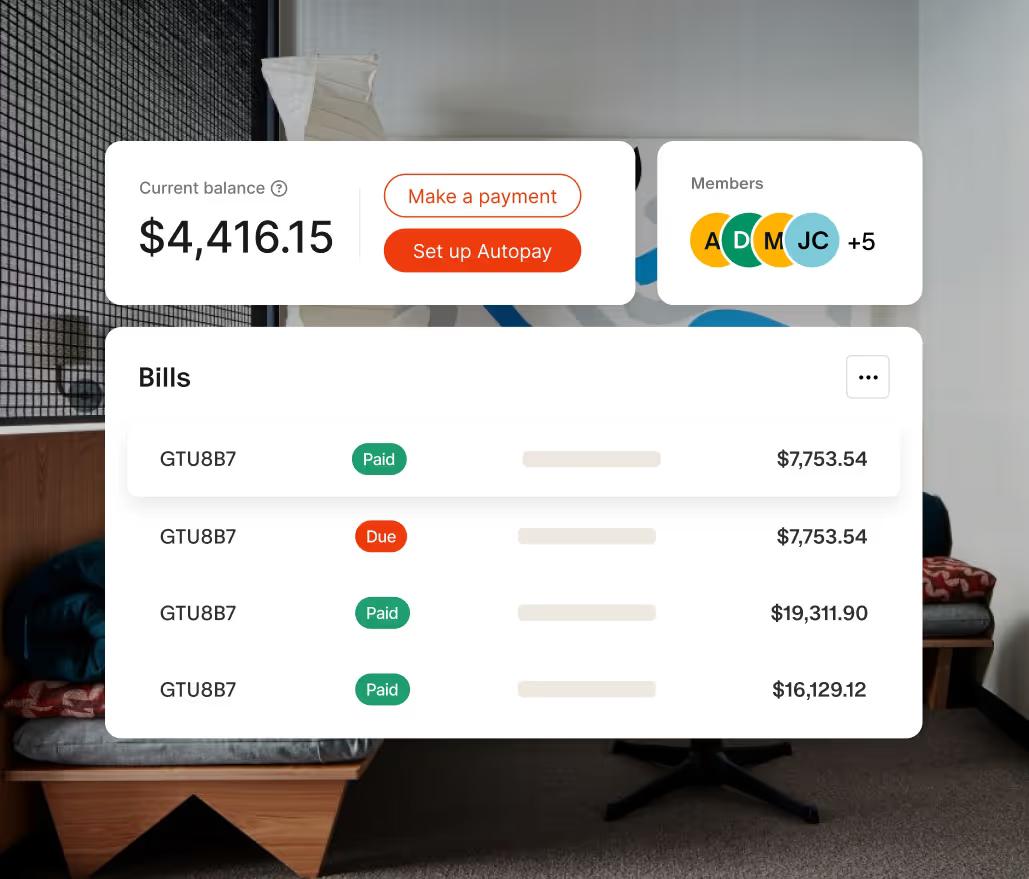The Hidden Cost of Rigid Travel Policies
.jpg)
Your field supervisor calls at 6 AM. The concrete pour scheduled for Tuesday got delayed by weather… again.
Your 12-person crew needs to extend hotel stays by three days. Your travel policy requires non-refundable bookings made 14 days in advance through a specific platform. You just forfeited $6,800 in deposits, and now you're scrambling to book new rooms at premium rates. Meanwhile, your Finance team won't discover this budget overrun until month-end—when it's too late to do anything about it.
This isn't a scheduling problem. It's a policy problem. And it's costing you far more than the line items on your travel budget.
Calculate What Rigid Policies Actually Cost
Rigid travel policies force project-based operations into frameworks designed for predictable office work. Non-refundable booking mandates. Multi-layer approval workflows. Booking windows requiring 14+ days advance notice. Change restrictions with massive financial penalties.
Your travel budget shows airfare, hotels, and per diem. What it doesn't show is everything else.
Track the Real Budget Impact
Finance teams spend hours every month reconciling hotel bills from multiple vendors. Worse: they're manually allocating travel expenses to projects at month-end because bookings weren't tagged at purchase. Companies lose thousands to out-of-policy bookings they only discover after the trip.
For private industry workers, the fully loaded cost of employee time averages $44.40 per hour worked, according to the Bureau of Labor Statistics. Small and medium-sized enterprises spend 7% of working time on administrative processes. That adds up to about 32 hours per month per employee on administrative tasks.
Consider the savings when you cut this cost: your operations manager spends 13 hours booking and rebooking a single crew rotation. If you can cut that to just 15 minutes, that's 12.75 hours of productivity saved—over $560 in fully loaded labor costs per booking cycle.
Before switching to Engine, RMS Energy faced two costly problems: forfeited bookings when project timelines shifted, and finance team hours chasing receipts for month-end reconciliation. They eliminated forfeiture losses on timeline changes. Direct Bill cut reconciliation time by 75%, replacing dozens of contractor receipts with one monthly invoice and saving them $87,000 on stay modifications.
Cut the Time Drain from Complex Booking
Complex booking processes force your team into three bad choices: violate policy to meet client needs, miss client opportunities, or wait for approvals that delay everything.
Let’s say your client needs a crew on-site Tuesday morning. Your policy requires 14-day advance bookings with manager approval,but it's Thursday afternoon. You can either book outside policy and deal with Finance later, wait until Monday for approval and miss the client window, or tell the client you can't respond quickly enough. All three options cost you: policy violations, lost revenue, or damaged client relationships.
The fix: automated policy enforcement at booking time. Instead of multi-layer approval workflows that create bottlenecks, set spending limits and geographic restrictions that enforce themselves. Teams book within parameters instantly. No waiting for approvals. No policy violations slipping through. No coordination chaos when you need rooms tonight for a crew that just got rerouted.
Before using Engine, K&K Electric spent 2+ hours every Monday booking rooms, sending credit card authorization forms, and dealing with back-and-forth. They spent the end of each week reconciling charges and sending folios. Now K&K Electric saves 30 hours per month on booking and reconciliation.
How Crews Stop Delays from Destroying Project Budgets
Your operations depend on coordinating crews across multiple job sites with changing timelines. Rigid policies create systematic failures.
Weather Delays Can’t Be Avoided
Construction projects face high rates of cost overruns and significant delays, with research identifying resource costs, schedule delays, and planning issues as primary causes. When weather delays a project by two days, can you modify 15 hotel bookings in minutes? Or do you lose deposits and book new rooms at premium rates?
Before Engine, non-refundable bookings meant Sims Crane felt the sting of budget overruns when equipment delays or weather caused project delays. Their Finance team faced a double hit: forfeited deposits showed as sunk costs on project P&Ls, while new bookings at premium rates pushed projects over budget. Month-end close took longer as they explained budget variances to project managers.
With FlexPro, they book available rates and cancel with real refunds or flexible travel credits whenever timelines change. The result? They've saved $40,000+ in hotel modification fees.
Extended Deployments Create Additional Problems
Per diem structures designed for three-day conference trips don't work for 30-180 day project assignments at remote sites. City-level rates don't reflect costs at oil fields, construction sites, or rural installations. Crews need functional living situations—kitchen supplies, laundry facilities, workspace setup—that standard per diem doesn't cover. And their stays often pick up extra days.
Southern Response manages disaster recovery crews deployed for weeks or months at a time. But hurricane response doesn't follow a predictable schedule. Timelines shift constantly based on weather, damage assessments, and client needs. Every timeline change with non-refundable bookings meant forfeited deposits and rebooking at premium rates.
Before Engine, they were throwing away money every time a project extended or wrapped early. Southern Response saved $200,000 with FlexPro by getting real refunds and flexible travel credits whenever timelines changed. They also saw a 93% reduction in booking time by eliminating the coordination chaos of canceling and rebooking extended crew deployments.
Maintain Control While Enabling Flexibility
You can maintain spending controls while adapting to dynamic project needs. The answer isn't choosing between control and flexibility—it's putting guardrails in place that establish boundaries while letting teams operate autonomously.
With Engine, you stop out-of-policy spending before it starts by enforcing spending limits at search time. Set a per-night rate cap—say $150—and travelers only see hotels within that limit. If no rooms are available at $150, the system automatically checks your second tier (maybe $175), then a third tier if needed. You control how many tiers exist and when they apply.
Geographic overrides handle expensive markets. Your standard policy caps rooms at $150, but you know New York and San Francisco cost more. Set location-specific limits—$225 for NYC, $200 for SF—and the platform automatically applies the right cap based on where your crew is booking.
The "book outside policy" option gives you a release valve. When rates spike due to conferences or disasters, travelers can request an exception and explain why—no midnight phone calls asking for approval. You see the request, the reason, and approve or deny in seconds.
When policies focus on autonomy instead of control, compliance actually improves. Give teams clear boundaries and the authority to make decisions within those boundaries. The result: fewer policy violations, better responsiveness to changing project needs, and lower administrative overhead.
Stop Chasing Receipts. Start Controlling Costs.
Negotiated hotel rates deliver 10-15% savings. Larger costs come from wasted time on manual approvals, coordination chaos that pushes projects over budget, and missed opportunities because your team couldn't respond fast enough.
Your crews need to move when projects change. Your finance team needs audit-ready data without manual reconciliation. Your operations need visibility over every booking.
Engine gives you control without the chaos. Get negotiated corporate rates with flexible cancellation. Custom Fields that tag every booking to the right project code. 24/7 U.S.-based support when plans change at 2 AM.

Frequently Asked Questions
How do flexible policies maintain cost control?
Flexible policies with automated guardrails improve cost control by catching violations before money is spent. Engine lets you enforce spending limits during search, so travelers only see compliant options, eliminating policy violations entirely.
What's the difference between policy guardrails and rigid rules?
Rigid rules require pre-approval for every booking, creating bottlenecks. Guardrails establish spending limits but allow instant booking within those parameters. It’s control without friction.
How can finance managers calculate ROI on flexible policies?
Calculate fully loaded costs beyond travel expenses: productivity lost to approval workflows, finance team hours on reconciliation, and opportunities missed due to delayed responses. Most companies find 15-25% reduction in total travel costs by eliminating reconciliation time and forfeited bookings.
What features should operations managers prioritize when evaluating travel platforms?
Focus on platforms that enforce policy before money is spent, not after. Look for flexible cancellation that gives you real refunds when timelines change. After credit approval, consolidated billing should eliminate employee reimbursements entirely with one monthly invoice tagged to the right project codes.
How do companies implement flexible policies without losing financial oversight?
Engine provides real-time dashboards showing exactly where money goes, with automated policy enforcement during search. Role-based spending limits ensure the right people make the right decisions. You shift from manual approval workflows to automated guardrails, cutting administrative overhead by 7% while maintaining total control.





.jpg)



.avif)


.jpg)






.avif)









